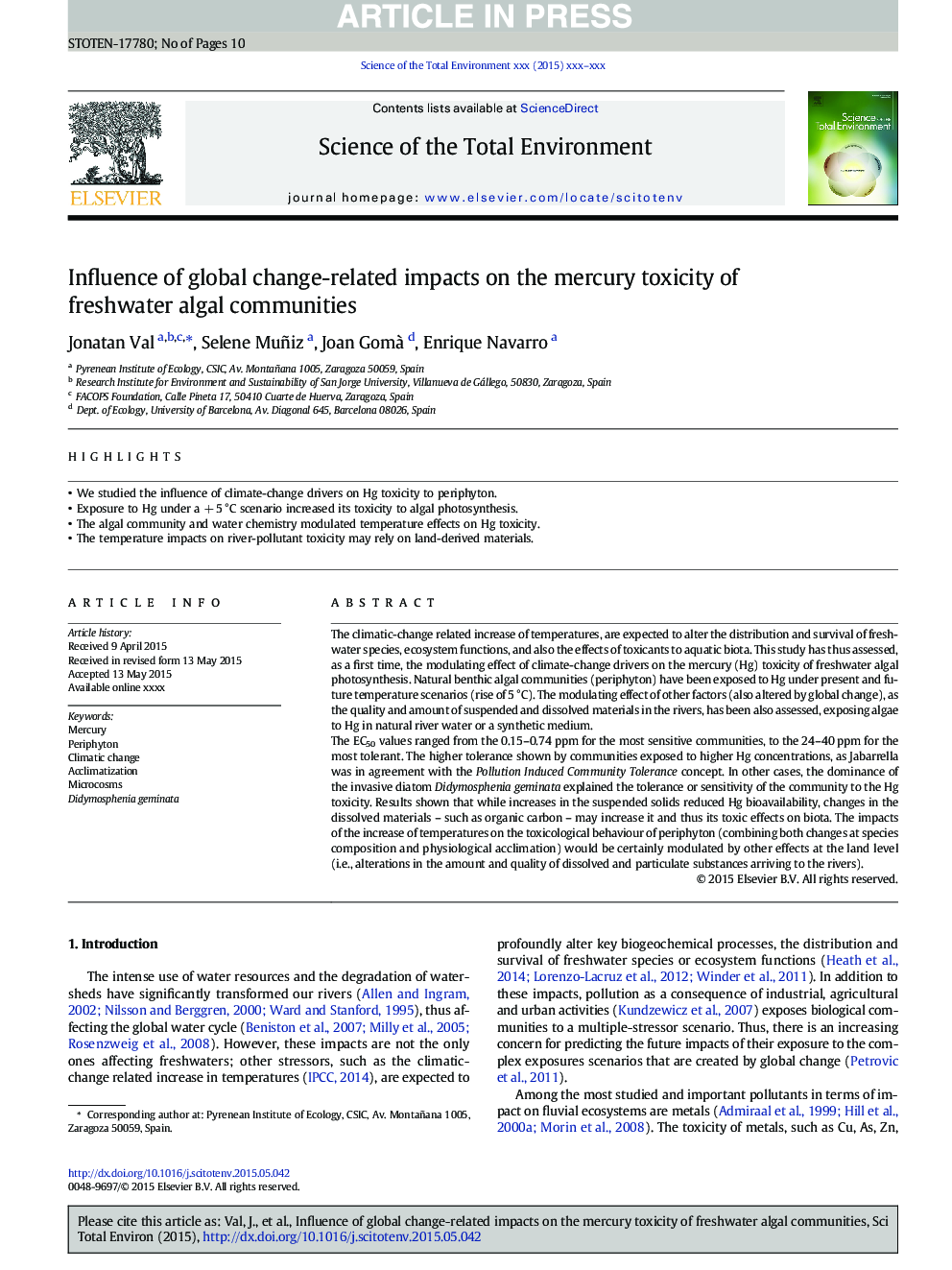| Article ID | Journal | Published Year | Pages | File Type |
|---|---|---|---|---|
| 6324583 | Science of The Total Environment | 2016 | 10 Pages |
Abstract
The EC50 values ranged from the 0.15-0.74Â ppm for the most sensitive communities, to the 24-40Â ppm for the most tolerant. The higher tolerance shown by communities exposed to higher Hg concentrations, as Jabarrella was in agreement with the Pollution Induced Community Tolerance concept. In other cases, the dominance of the invasive diatom Didymosphenia geminata explained the tolerance or sensitivity of the community to the Hg toxicity. Results shown that while increases in the suspended solids reduced Hg bioavailability, changes in the dissolved materials - such as organic carbon - may increase it and thus its toxic effects on biota. The impacts of the increase of temperatures on the toxicological behaviour of periphyton (combining both changes at species composition and physiological acclimation) would be certainly modulated by other effects at the land level (i.e., alterations in the amount and quality of dissolved and particulate substances arriving to the rivers).
Related Topics
Life Sciences
Environmental Science
Environmental Chemistry
Authors
Jonatan Val, Selene Muñiz, Joan Gomà , Enrique Navarro,
